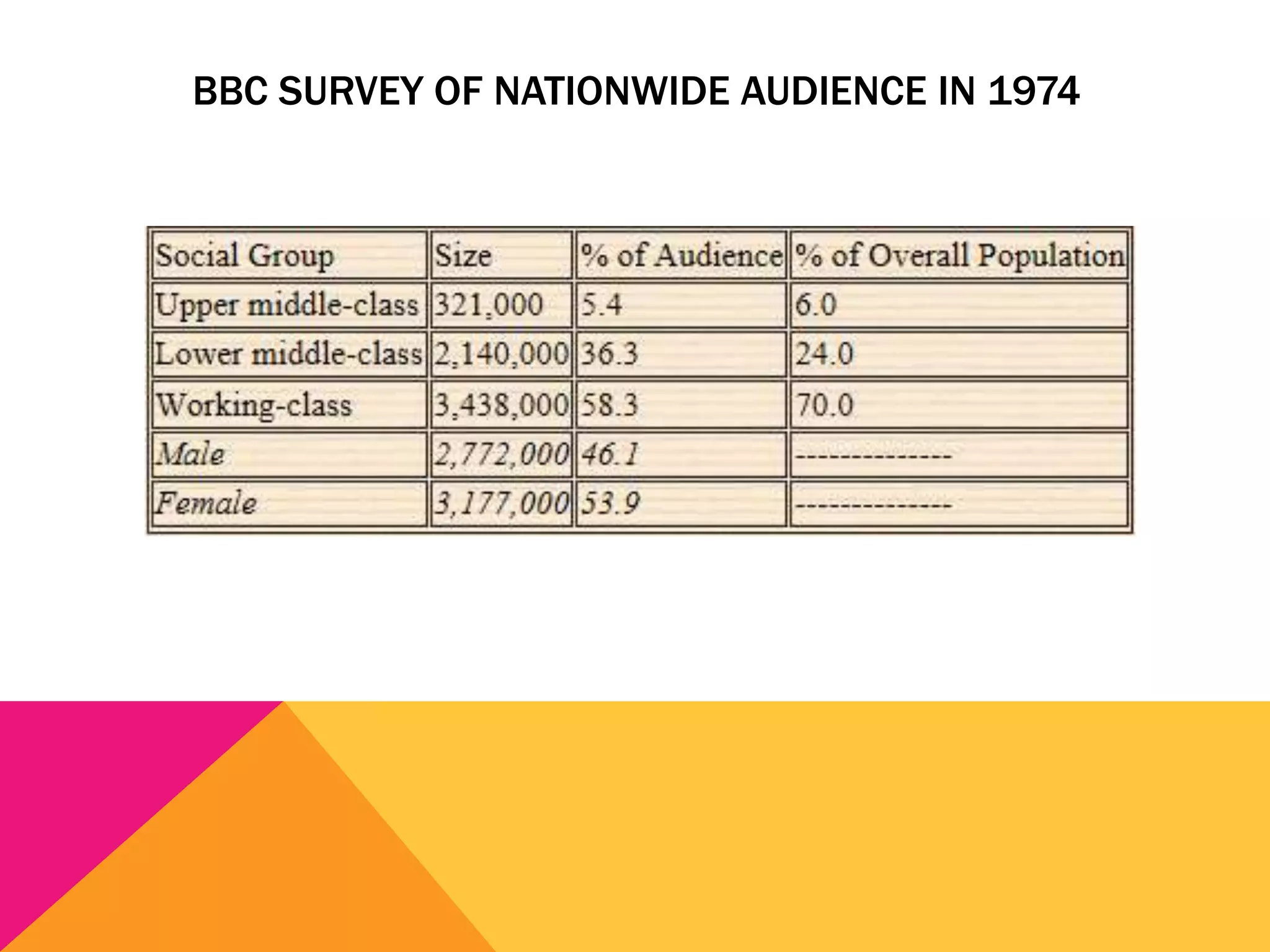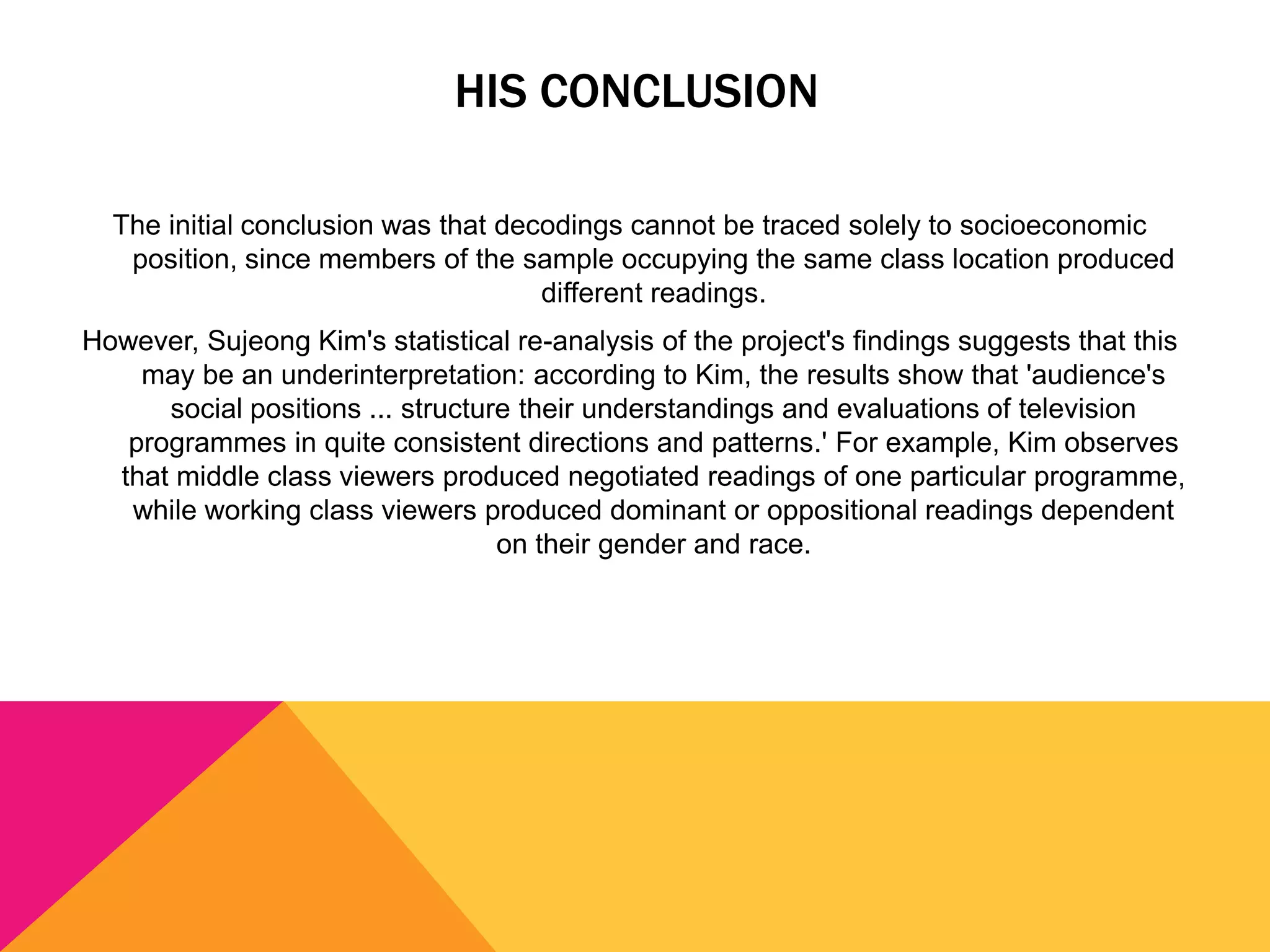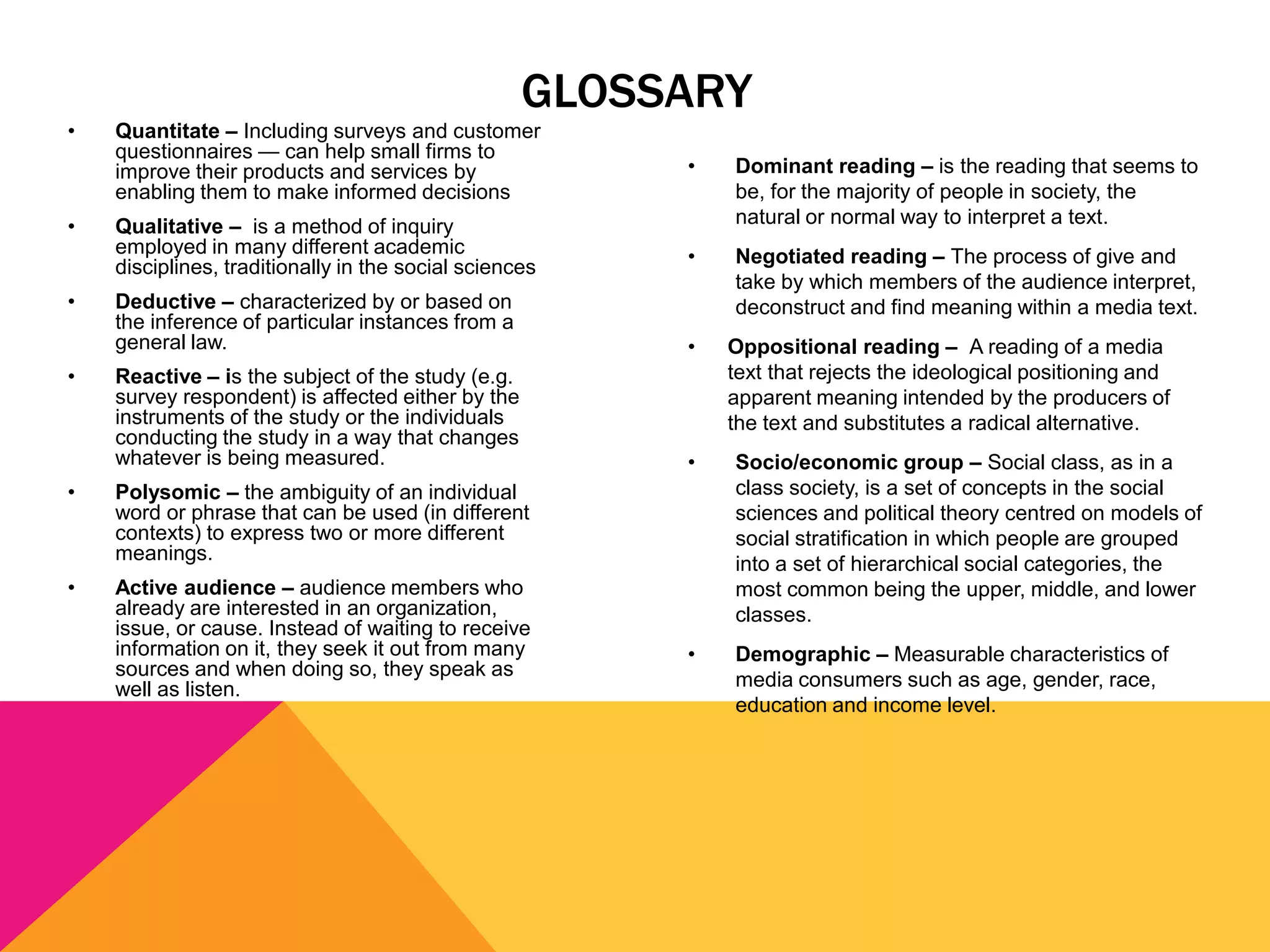David Morley was a British media researcher who specialized in audience theory. He conducted the Nationwide Project in the late 1970s and early 1980s to study audience reception of the BBC television program Nationwide. Morley observed different responses to clips of the program from participants of various backgrounds. Initially, he concluded that readings could not be traced to socioeconomic position alone, as people of the same class produced different readings. However, later analysis suggested social positions did structure understandings and evaluations in consistent patterns, such as middle class viewers producing negotiated readings and working class viewers producing dominant or oppositional readings depending on gender and race.








